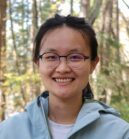Ying Jin

- Assistant Professor of Statistics and Data Science
Contact Information
- Primary Email:
yjinstat@wharton.upenn.edu
- office Address:
441 Academic Research Building
265 South 37th Street
Philadelphia, PA 19104
Research Interests: Uncertainty quantification, Distribution-free inference, Causal inference, Selective inference, Generalizability.
Links: Personal Website
Activity
Latest Research
Kexin Huang, Ying Jin, Ryan Li, Michael Li, Emmanuel J. Candes, Jure Leskovec (2025), Automated hypothesis validation with agentic sequential falsifications, International Conference on Machine Learning (ICML).
All Research

